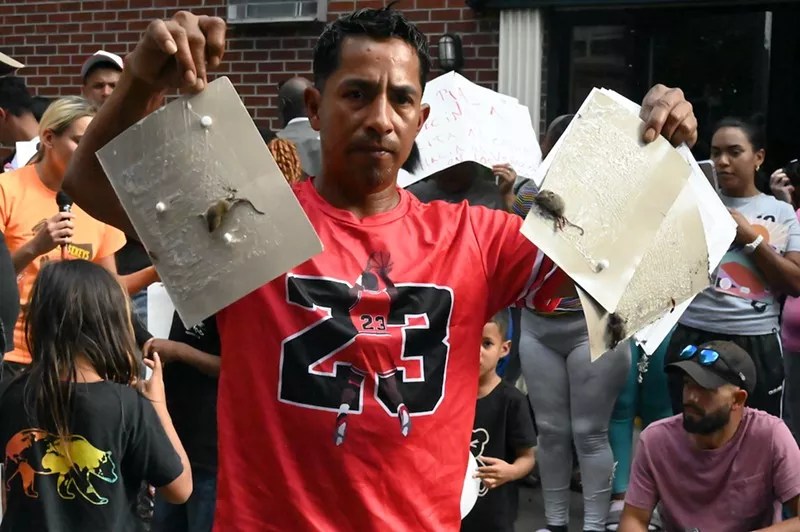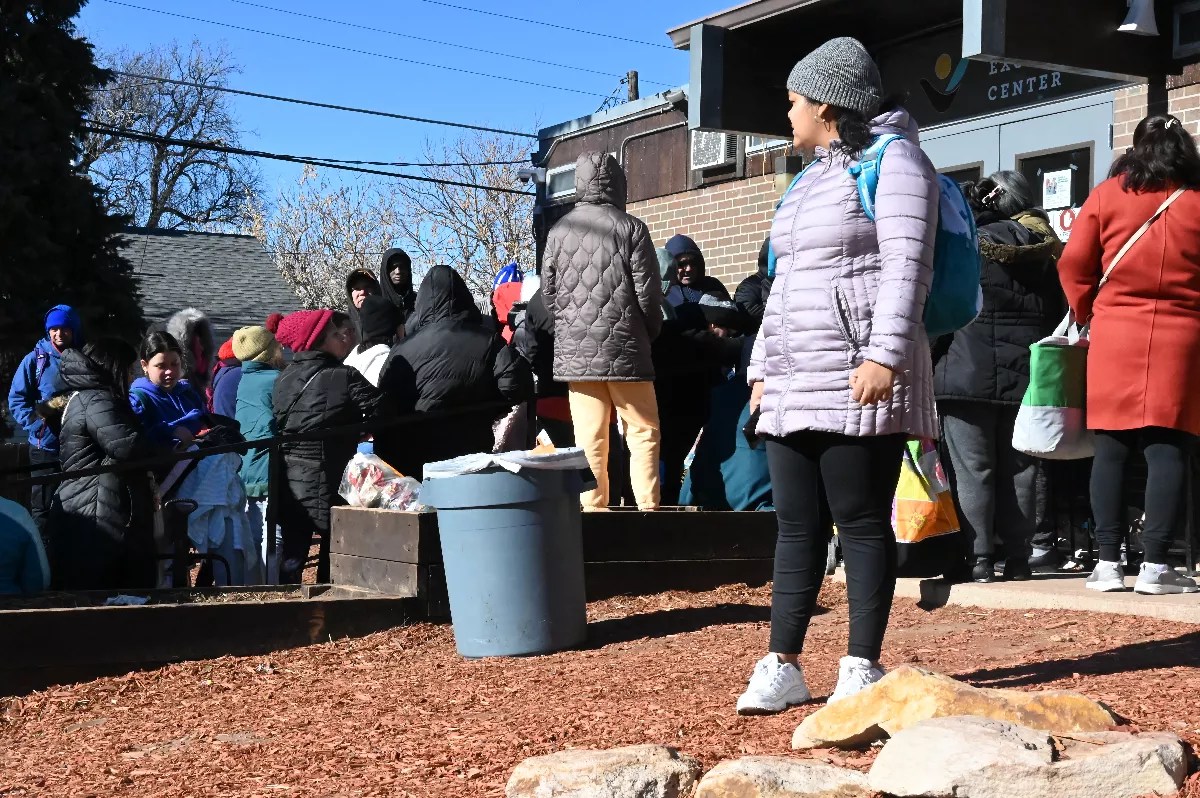
Bennito L. Kelty

Audio By Carbonatix
On December 17, Aurora Police Chief Todd Chamberlain – the city’s fifth police chief in five years, who’d come to Colorado’s third-largest city from Los Angeles – discussed the detainment of more than a dozen Venezuelans in connection with the kidnapping and torture of a young couple living in the Edge of Lowry apartments. For him, the incident showed that two disputed claims about Aurora are in fact both true: The city has a problem with a violent Venezuelan gang…and federal immigration failures are to blame.
“This is without question a gang incident,” Chamberlain said. “Aurora, we are now in the process, like many other cities throughout this nation, of trying to pick up the pieces of an incredibly bad system that was in place.”
At the start of 2024, Aurora was already dealing with a migrant dilemma, but a very different one. With the state’s most diverse population, the city’s nonprofits were trying to determine how to help French- and Pulaar-speaking migrants from West Africa. The Aurora Migrant Response Network, an organization of about fifty nonprofits that were handling the influx of migrants, started hosting cooking classes and English lessons for African migrants in early February, while Denver was starting to make budget cuts in order to handle the thousands of Venezuelan migrants pouring into that city.
Aurora City Council – in particular, at-large councilwoman Danielle Jurinsky – saw Denver cutting rec center and DMV hours, and on February 26, the council passed a resolution promising it would not open Aurora coffers to support migrants, reaffirming its stance as a non-sanctuary city.
In June, Aurora’s police department was back in the spotlight after officers shot and killed Kilyn Lewis while serving an arrest warrant. Lewis was unarmed, and his death led protesters to interrupt Aurora City Council meetings, demanding that Mayor Mike Coffman resign, the involved officers be fired, and council refuse Chamberlain’s appointment to the head of the APD.
The summer wasn’t all bad, though. Goodwill of Colorado opened the Excel Center, which offers a free high school education for adults, and city and state leaders broke ground on a Zyn factory, despite opposition from health groups.
But then Aurora’s migrant issue made national headlines in August. As the City of Aurora prepared for the mass eviction of tenants from a dilapidated apartment building at 1568 Nome Street, a property manager with CBZ Management, which owned the building, claimed that the units had been taken over by the violent Venezuelan gang Tren de Aragua.
The city quickly refuted the claims, saying that the evictions were the result of neglect and code violations dating back to 2020. But Zev Baumgarten, the property manager, responded that he hadn’t been able to take care of the complex because of gang intimidation scaring away employees. But then residents at other CBZ properties noted that their apartments were severely neglected, too.

A line of migrants forms outside the Village Exchange Center, a nonprofit in the Aurora Migrant Response Network.
Bennito L. Kelty
The claims by CBZ Management attracted national attention after a video surfaced of six armed men walking through the halls of another CBZ property, the Edge at Lowry. Jurinsky went on Fox News and Dr. Phil Primetime with Cindy Romero, the resident who’d captured the footage; they asserted that Tren de Aragua had indeed taken over Aurora apartment buildings, if not the city itself.
The media storm hit just months before the presidential election, and Donald Trump capitalized on it, citing Aurora in comments and then bringing his campaign to the city on October 11. At a rally at the Gaylord Rockies Resort, where Jurinsky and Romero both spoke, he went all in on the Venezuelan gang claims, promising death penalties for immigrants who committed murder and mass deportations for everyone else, starting his first day back in office with the launch of Operation Aurora.
After Trump won the election on November 5, nonprofits that had been helping migrants along with the city’s refugee resettlement agencies started preparing for the next administration. “It’s a new day in Aurora,” Jurinsky said. “You are seeing more transparency, you are hearing more of the stories. We are heading in a new, wonderful direction.”
But when Coffman hosted his first big press conference in months on December 20, he clarified a position that had seemed murky at times. “The narrative that’s floating around nationally is that it isn’t these three apartment complexes, it’s the city of Aurora,” he said, referring to the CBZ properties. “The way it’s being presented that I took issue on is that it’s Aurora being overrun, and that’s simply not true. That’s the concern I have. We’re a city of 400,000.”
And one that’s been in the headlines plenty in 2024…with no end in sight.